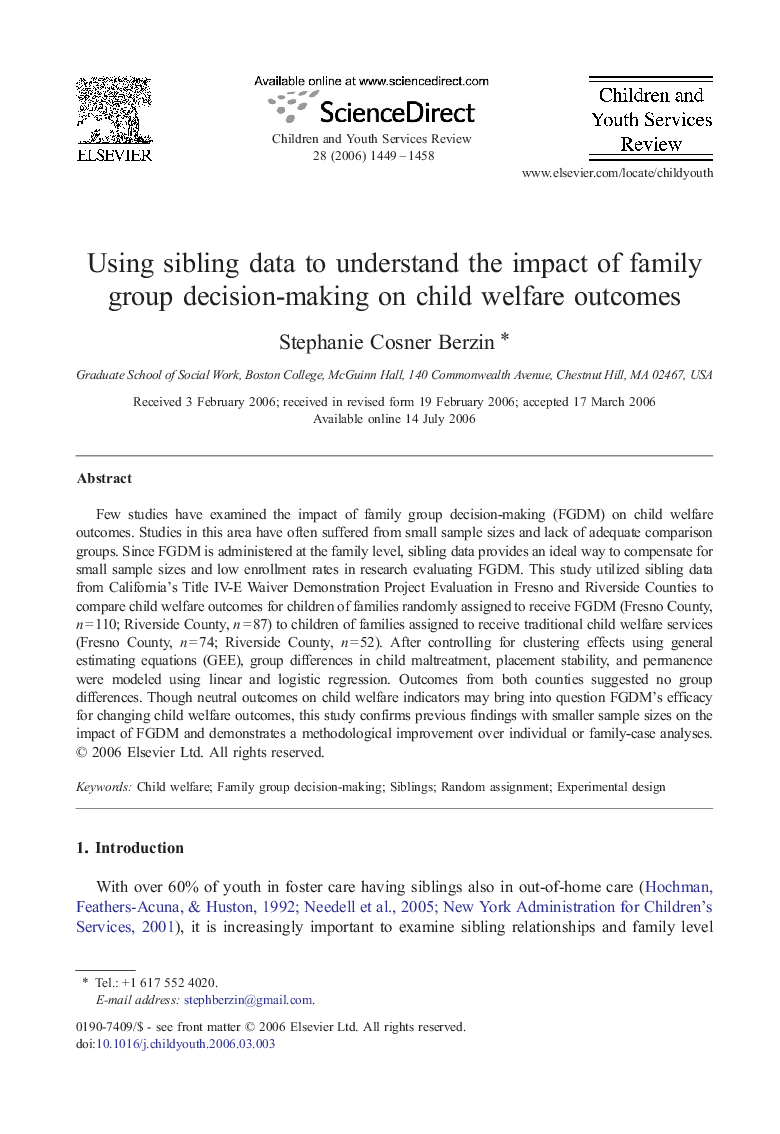| Article ID | Journal | Published Year | Pages | File Type |
|---|---|---|---|---|
| 347240 | Children and Youth Services Review | 2006 | 10 Pages |
Few studies have examined the impact of family group decision-making (FGDM) on child welfare outcomes. Studies in this area have often suffered from small sample sizes and lack of adequate comparison groups. Since FGDM is administered at the family level, sibling data provides an ideal way to compensate for small sample sizes and low enrollment rates in research evaluating FGDM. This study utilized sibling data from California's Title IV-E Waiver Demonstration Project Evaluation in Fresno and Riverside Counties to compare child welfare outcomes for children of families randomly assigned to receive FGDM (Fresno County, n = 110; Riverside County, n = 87) to children of families assigned to receive traditional child welfare services (Fresno County, n = 74; Riverside County, n = 52). After controlling for clustering effects using general estimating equations (GEE), group differences in child maltreatment, placement stability, and permanence were modeled using linear and logistic regression. Outcomes from both counties suggested no group differences. Though neutral outcomes on child welfare indicators may bring into question FGDM's efficacy for changing child welfare outcomes, this study confirms previous findings with smaller sample sizes on the impact of FGDM and demonstrates a methodological improvement over individual or family-case analyses.
